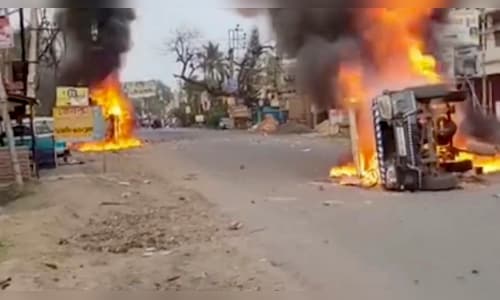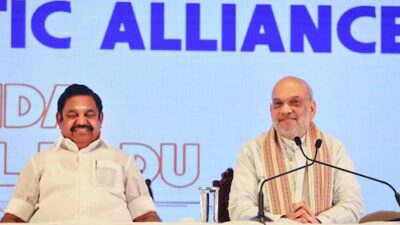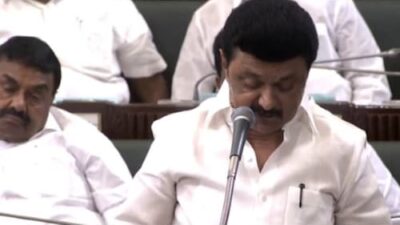The protests commenced on Friday, with incidents of vehicles, including police vans, being set ablaze, stones hurled at security personnel, and roads obstructed in Suti, Dhulian, Samserganj, and Jangipur. No new violence was reported on Sunday, with police indicating a return to calm.
A senior official stated, “The situation in Suti, Dhulian, Samserganj, and Jangipur areas of the district is tranquil.” They added, “An investigation into the violent events is in progress. Further arrests may occur.”
Three individuals lost their lives during the clashes. Ijaz Momin, 21, succumbed to bullet wounds on Saturday after being injured during confrontations at Sajur More, Suti, on Friday. In Jafrabad, Samserganj, Harogobindo Das and his son Chandan Das were discovered deceased on Saturday with stab injuries. Eighteen police officers sustained injuries on Friday.
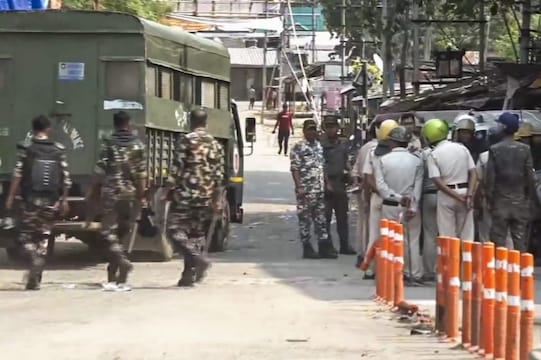
Security forces personnel guard in a violence-hit area, in Murshidabad district. Violence erupted in the area following protests over Waqf Act. (PTI Photo)
To maintain control, authorities enacted prohibitory orders under section 163 of the Bharatiya Nagarik Suraksha Sanhita (BNSS) and suspended internet services. Security forces are inspecting vehicles and monitoring sensitive areas.
The Calcutta High Court mandated the swift deployment of central forces, and five companies of the Border Security Force (BSF) arrived for assistance. BSF Inspector General Karni Singh Shekhawat remarked, “We have dispatched our five companies to aid the police. Collaboration is essential in this scenario.”
The protests ignited political discussions. BJP leader Suvendu Adhikari asserted that over 400 Hindus were compelled to leave their residences, attributing the blame to the Trinamool Congress (TMC) for supporting radical elements. He released videos, one of which showed a man claiming his home was set on fire while law enforcement retreated.
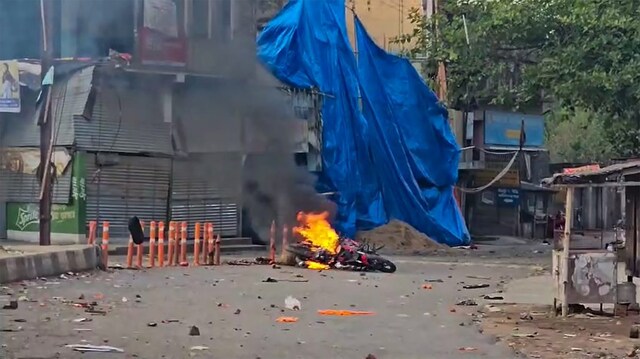
A torched vehicle during a protest against the Waqf (Amendment) Act, in Murshidabad district. (PTI Photo)
TMC MP Saugata Roy noted that Chief Minister Mamata Banerjee convened a meeting to address concerns within the Muslim community, asserting, “Mamata Banerjee is recognized as the leader of the people of Bengal. She is adept at governing Bengal.”
BJP MP Jyotirmay Singh Mahato urged Union Home Minister Amit Shah to classify border districts as “disturbed areas” under AFSPA, criticizing the state’s response.
DGP Rajeev Kumar visited Samserganj Saturday night to assess the situation alongside senior officers. The police continue to monitor the district to avert further incidents.
(With input from agencies)
